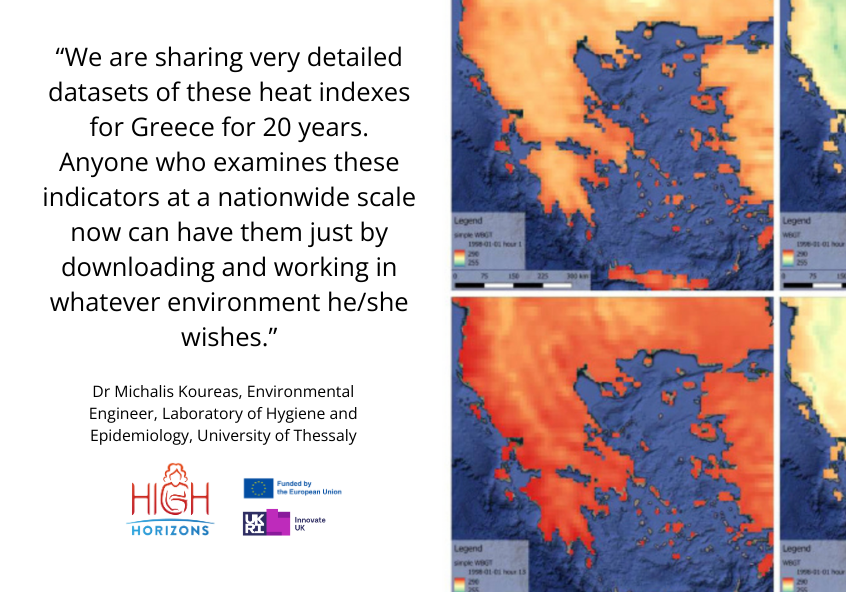HIGH Horizons researchers have published open access human thermal stress indices datasets for Greece that can be used by researchers or authorities aiming to investigate the relationship between heat and health in the country.
The study, “Daily time series of 12 human thermal stress indices in Greece, aggregated at commune level (1998-2022),” has been published in the journal Data in Brief in January by researchers at the University of Thessaly and University of Graz.
Read the study: https://lnkd.in/eVZHfUib
Download the datasets: https://lnkd.in/e6-2deXk
“We are sharing very detailed datasets, large datasets, that provide the data and information of these heat indexes for Greece for 20 years in an improved scale” said Dr Michalis Koureas of the University of Thessaly, an Environmental Engineer in the Laboratory of Hygiene and Epidemiology and an author on the study. “Anyone who examines these indicators at a large, nationwide scale now can have them just by downloading and working in whatever environment he/she wishes.”
The paper provides Greek datasets at the municipality level for twelve different indices that can be used to quantify the exposure of individuals to heat, including: Apparent Temperature (AT), Heat Index (HI), Humidity Index (Humidex), Normal Effective Temperature (NET), Wet Bulb Globe Temperature (simple version WBGT), Wet Bulb Globe Temperature (thermofeelWBGT), Wet Bulb Temperature (WBT), Wind Chill Temperature (WCT), Mean Radiant Temperature (MRT), and Universal Thermal Climate Index (UTCI) with two variations (UTCI indoor and UTCI outdoor).
HIGH Horizons researchers in Greece are currently using the datasets provided by this study against health data in the country, to better understand the impacts of heat on maternal and infant health, and hope to publish results later this year.

